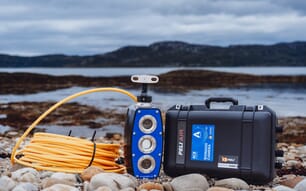The company also expressed support for the extensive peer-review process undertaken by Monterey Bay Aquarium’s Seafood Watch® Program in ranking US-farmed yellowtail (Kona Kampachi®) as a “Good Alternative,” and affirmed the need for objective, rational standards for sustainable seafood.
“This recognition is an important step in addressing the crisis in our oceans,” said company Co-founder and President, Neil Anthony Sims – a marine biologist. “There are monumental ocean management issues, such as over-fishing, that need to be urgently addressed. Yet these lobbyist groups want to subvert all evidence of sustainable solutions, and try to manipulate Hawaiian sovereignty sentiments for their own political agenda. They are now trying to impugn the objectivity of Monterey Bay Aquarium.”
Food and Water Watch, an anti-aquaculture activist organization based in Washington, D.C., and the Kanaka Council are calling for the removal of U.S. farmed yellowtail from the Seafood Watch card, based on their unfounded concerns about cultural impacts, fish feed, and impacts on wild fish populations.
Kona Blue dismissed as untrue claims that the company’s open ocean mariculture farm in Hawaii has caused negative cultural impacts. Sims stated that sensitivity to cultural issues has been a priority for the company since its inception, and that cultural concerns have been repeatedly addressed throughout extensive Environmental Assessments.
“We consulted at length with native Hawaiian ‘kupuna’” (elders), said Sims, “and they determined that there were no significant Hawaiian artifacts in the farm site.”
Sims pointed out that Kona Blue undertakes comprehensive environmental monitoring, and regular water quality and benthic data are made available on its website (www.kona-blue.com). Feeding is also closely monitored by underwater camera to avoid waste, and the company’s current shark management plan has been endorsed by state agencies. “And the fact that the farm serves as a fish aggregate devise is much appreciated by local fishermen,” said Sims.
“The bigger picture here is that overfishing represents a global catastrophe, and we desperately need to find solutions to this crisis,” said Sims. He asserted that responsible open ocean mariculture has 60 times less footprint on ocean resources than targeting wild predators such as tuna and swordfish. “Yet FWW wants to just say ‘No.’ They are not focused on solutions.”
Sims cited a recent FAO report stating that 47% of the world’s seafood supply now comes from aquaculture.
“We must move towards a more sustainable future,” he stressed. “Kona Blue continues to collaborate with responsible environmental groups such as Monterey Bay Aquarium, Ocean Conservancy and the World Wildlife Fund. These organizations also recognize that responsible open ocean mariculture must be part of the solution.”
Kona Blue operates an array of submersible net pens in waters over 200 feet deep, with strong currents over a sand bottom, a half-mile offshore from the Kona coast. The site was carefully selected to minimize potential for environmental impacts, and to avoid conflicts with existing uses or cultural concerns. The company undertook three years of extensive community consultations and outreach before the lease was granted, in 2004. The farm has been in operation since 2005, and produced around 500 tons of sashimi-grade Kona Kampachi® in 2008. Kona Kampachi® is distributed nationally and has received rave reviews, including from the nation’s most discerning seafood chefs.
Kona Blue Retaliates to Hawaiin Fish Farm Claims
KAILUA-KONA, HAWAII - Kona Blue Water Farms today dismissed as unwarranted the claim by Food and Water Watch and the Kanaka Council Moku O Keawe that the companys open ocean mariculture farm in Hawaii has caused negative cultural impacts.



